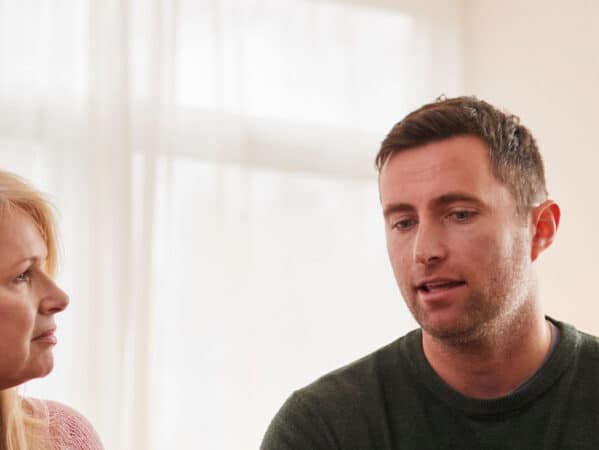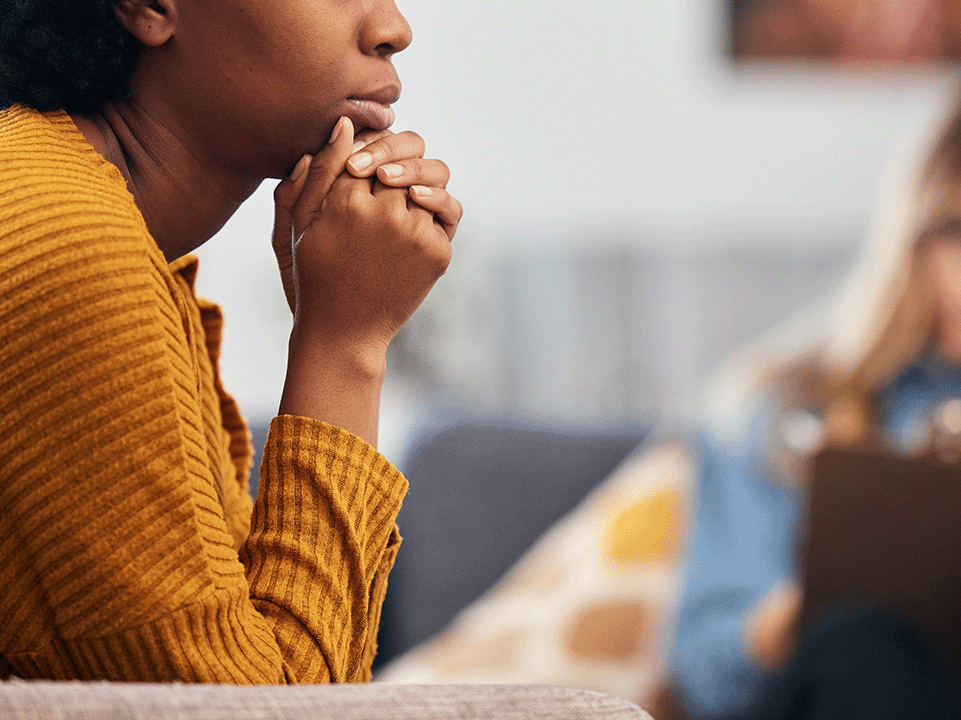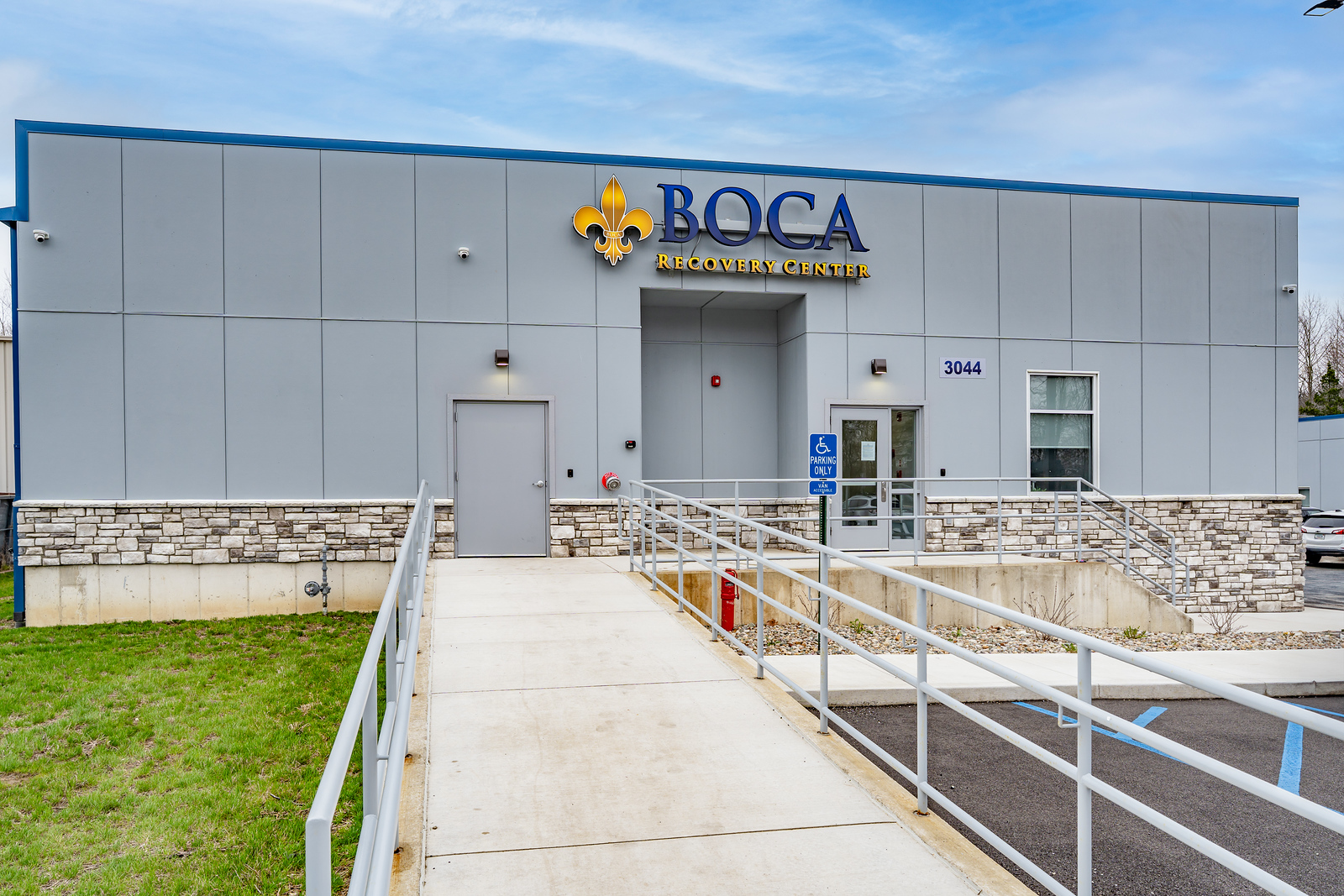Addiction and domestic violence, and more generally domestic abuse, have a dangerous relationship, often feeding into one another.
If you or a loved one is a victim of domestic abuse, keep reading for an explanation of the different types of abuse and to get resources that may help to escape both addiction and abuse.
Types of Domestic Abuse
Domestic abuse comes in many forms and at differing levels of severity. It’s important to recognize the signs that one is in an abusive relationship. The first step to exiting dangerous or otherwise unhealthy relationships is to recognize there is a problem.
Domestic abuse can include the following forms of abuse:
Emotional Abuse
Emotional abuse is emotional manipulation of another person, often to reduce their sense of self-worth and control their emotions in a harmful way.
Common signs of emotional abuse include belittling a person’s abilities and achievements and use of aggressive, mean language.
Many people who are emotionally abusive have severe trust issues. They may grow extremely jealous and paranoid of other relationships a person may have, even if those relationships are ordinary friendships and family relationships.
Psychological Abuse
Psychological abuse, often combined with other forms of abuse (especially emotional and physical abuse), occurs when an abuser psychologically damages their partner or other members of their household. They may threaten to harm themselves or a member of the family, hurt or kill pets, or destroy property. They often play mind games where they “test” people in the family unit to see if they’ll act the way they want in different circumstances.
Like with a lot of abuse, but psychological abuse especially, this often involves isolating people from their friends and peers. This makes it easier to maintain control and harder for the person to recognize the abuse and escape.
Financial Abuse
One of the lesser known types of abuse is financial abuse. When a person engages in financial abuse, they attempt to make a person financially dependent on them.
For example, a partner might force all of a family’s money to be in one account only they can access. They may forbid certain activities, like school or work, preventing people in the family from gaining more independence. This makes people reliant on the abuser who can use this financial power to force members of their family to do what they want.
Physical Abuse
Physical abuse involves the use of physical force. Most people associate it with an abuser striking or threatening a partner with violence, but it can also include less direct physical acts, such as breaking things or trapping you in a room.
Some forms of physical abuse can include forcing a person to take drugs or denying their ability to take necessary drugs. While often outwardly violent, physical abuse also includes acts meant to scare a person and make them worry about their safety or the safety of their children or other loved ones.
Sexual Abuse
It’s important to recognize that even if you’re in a romantic or otherwise sexual relationship with a person, you don’t “owe” anyone anything you don’t want to do. This also applies to relationships in which the people involved are married.
Sexual abuse occurs when an abuser forces another person to participate in a sex act or similar behavior when that partner doesn’t want to do so. While this can include outright sexual assault, sometimes with the use of violence, it can also include pressuring a partner to dress provocatively when they don’t want to or demanding sex when they clearly don’t want to have it, especially if they’ve already stated they don’t want to have sex.
Domestic Abuse’s Connection to Addiction
Abuse is known to have a relationship with addiction.
Studies show that domestic abuse is generally much more common when one or both partners (most studies focused on traditional, monogamous relationships) engage in drug abuse, including alcohol abuse. Additionally, being a victim of domestic violence is known to increase a person’s risk of developing an addiction.
More needs to be studied about the relationship between addiction and domestic abuse, but it clearly plays an important role in many occurrences of abuse and in the aftermath of abuse. This also makes logical sense, as drug use can affect a person’s judgment and heighten emotions. Drug use is also a frequent coping mechanism used by those who are under extreme stress or have experienced trauma.


Aftercare Plans: Key To Preventing Relapse in Addiction Treatment
Addiction Among Abusers & Victims
Frequent drug use by a person who is an abuser or may develop into an abuser can result in periods where they act unpredictably and without the ability to fully understand the consequences of their actions. For example, severe alcohol abuse can cause a person who is already prone to violence to act even more aggressively, sometimes to the point where they may deal permanent damage to another person, even potentially killing them, when they would not do so sober.
Drug abuse and addiction don’t excuse domestic abuse. Nobody deserves abuse, and a person who is “safe” sober but frequently uses drugs and then becomes abusive is still an abuser.
Drug use also doesn’t necessarily turn a stable person abusive and vice versa. Many domestic abusers are abusive without engaging in drug use, and many people who struggle with drugs don’t engage in domestic abuse.
Because abuse can cause a person to feel unsafe, anxious, and have low self-esteem, people in abusive relationships may engage in drug use as an escape from their situation. They may also have had traumatic events occur to them, such as severe beatings or acts of sexual violence, that they use drugs to try and forget about.
People who struggle with drug abuse may be considered “easier targets” by abusers. A person who is dealing with addiction needs a reliable source of the substance they’re addicted to and may frequently have a limited ability to act independently while under the influence of drugs.
It’s important to understand that being addicted to drugs never justifies your abuse.
A person who uses any drug use you engage in as an excuse to abuse you is engaging in predatory behavior and should be considered unsafe for you and those around you.
How Do Addiction & Domestic Violence Feed Into Each Other
Addiction and domestic violence can create a deeply unhealthy, dangerous cycle where they feed into each other.
Domestic abuse can often lead to various acts of intimate partner violence. This violence can cause a victim to experience a variety of mental health problems. They may then abuse drugs to try and get temporary relief from their mental health struggles.
Unfortunately, drug abuse often leads to addiction and becoming less independent. This can make leaving a relationship harder, especially if an abuser controls the finances or is a household’s primary source of income. In some cases, the abuse may then get worse, thus creating more stress in the victim’s life and potentially leading to even greater levels of drug abuse.
This cycle isn’t sustainable. A person will need to try and escape it before either their abusive partner becomes so dangerous that they may be life-threatening, their mental health gets so bad they are at risk of suicide or serious mental breakdown, or their physical health deteriorates as a result of their drug abuse. This admittedly can be very difficult, especially if the abusive partner is very controlling.
Getting Help for Addiction & Domestic Violence
Addiction is a mental health issue, as are many of the problems that can result from domestic abuse.
If you’ve been the victim of domestic abuse or are still being victimized, a mental health professional can help equip you with the tools you need to improve your mental health, process trauma, and achieve independence if you are still trapped in an abusive relationship.
Depending on the severity of your struggles with drug abuse, you may need specialized therapy focused specifically on helping you manage addiction, although a mental health professional specializing in domestic abuse can likely provide at least some help in that area.
Often, the goals of addiction-focused therapy is to help you identify why you abuse drugs, provide tools that help you reorganize your thoughts around drug use, and form a strong support network to help you resist drug use. In some cases, you may also be prescribed medication as part of your treatment, such as Suboxone for opioid use disorder, to help you manage your drug abuse.
Severe addiction can sometimes require more focused, specialized treatment in an inpatient treatment facility. The goal of these facilities is to help you get through withdrawal, which can be one of the most difficult parts of overcoming drug abuse, and then focus on therapy. Your treatment team will work with you while you stay at the facility until you recover enough physically and mentally to function with more independence and better resist drugs once you leave.
Addiction & Domestic Abuse Resources
Domestic violence services
Many states offer domestic violence services, which are designed to help victims of domestic violence find support and get easy access to intervention measures. Many of these programs also include confidential hotlines you can call to get more information about what they offer. Check with your state’s Department of Children and Family Services for more information.
Safehouses or emergency shelters
These are safe and supportive facilities where you and your children can temporarily stay safely and confidentially as you try to rebuild your life after leaving an abusive situation. Local police departments and churches can often connect you with local safehouses or emergency shelters as well as other resources to support you and your family.
National Domestic Violence Hotline
The National Domestic Violence Hotline is a free and confidential hotline designed to help people who are the victims of domestic violence and similar abuse get access to the resources they need. This hotline is also available in the form of a chat, similar to how social media chat works, and text. This can be a good starting point if you’re looking to escape domestic abuse.
SAMHSA
SAMHSA’s National Helpline is run by the Substance Abuse and Mental Health Services Administration to help people understand available resources to combat mental health and substance abuse problems. Available at 1-800-662-HELP (4357) in both English and Spanish, this resource isn’t necessarily focused on helping victims of domestic abuse specifically, but it can help people who are struggling with addiction or mental health problems that they developed as a direct or indirect result of abuse.
- Domestic Violence Services. NJ Office of Domestic Violence Services.
- Drug Abuse and Intimate Partner Violence: A Comparative Study of Opioid-Dependent Fathers. (April 2012). American Journal of Orthopsychiatry.
- The Psychological Subtype of Intimate Partner Violence and Its Effect on Mental Health: Protocol for a Systematic Review and Meta-Analysis. (August 2019). Systematic Reviews.
- The Role of Emotional Abuse in Physically Abusive Relationships. (January 1990). Journal of Family Violence.
- Economic Abuse as an Invisible Form of Domestic Violence: A Multicountry Review. (March 2018). Trauma Violence & Abuse.
- Long-Term Physical and Mental Health Effects of Domestic Violence. (Spring 2014). Themis: Research Journal of Justice Studies and Forensic Science.
- “He Could Scare Me Without Laying a Hand on Me”: Mothers’ Experiences of Nonviolent Coercive Control During Marriage and After Separation. (September 2015). Violence Against Women.
- A Systematic Review of Intimate Partner Violence Interventions Focused on Improving Social Support and/or Mental Health Outcomes of Survivors. (June 2020). PLOS ONE.
- Sexual Violence Among Married Women: An Unspoken Sting. (October–December 2014). International Journal of Research in Medical Sciences.
- Drug Abuse and Intimate Partner Violence: A Comparative Study of Opioid-Dependent Fathers. (April 2012). American Journal of Orthopsychiatry.
- What Role Does Substance Use Play in Intimate Partner Violence? A Narrative Analysis of In-Depth Interviews With Men in Substance Use Treatment and Their Current or Former Female Partner. (October 2019). Journal of Interpersonal Violence.
- National Domestic Violence Hotline. National Domestic Violence Hotline.
- National Intimate Partner and Sexual Violence Survey. (2010). Centers for Disease Control and Prevention.
- Prevalence and Health Effects of Intimate Partner Violence and Non-Partner Sexual Violence. World Health Organization.
- Safety Tips for Victims of Domestic Violence. National Center on Domestic and Sexual Violence.
- SAMHSA’s National Helpline. (March 2022). Substance Abuse and Mental Health Services Administration.
- What Is Domestic Abuse? United Nations.











